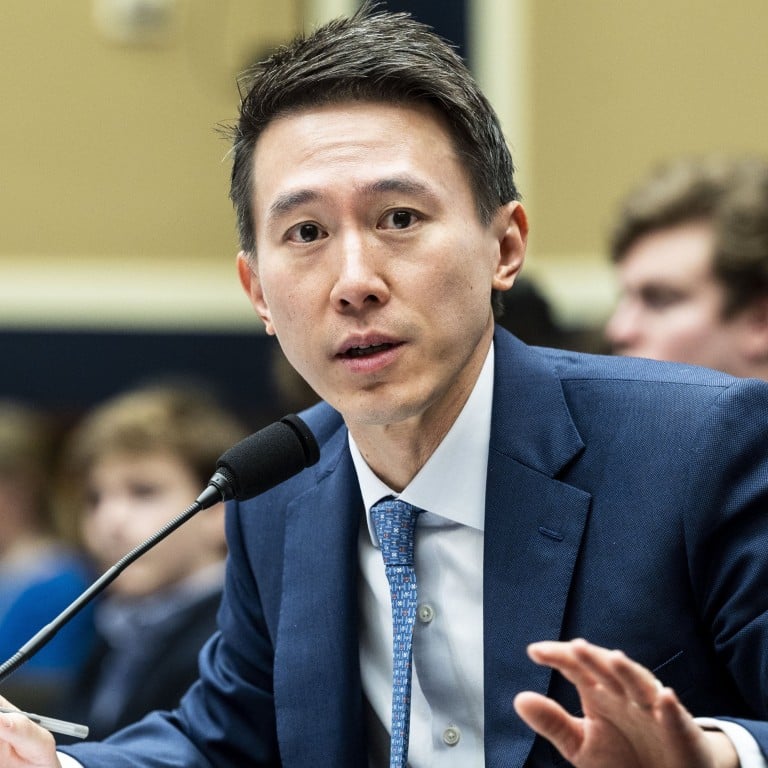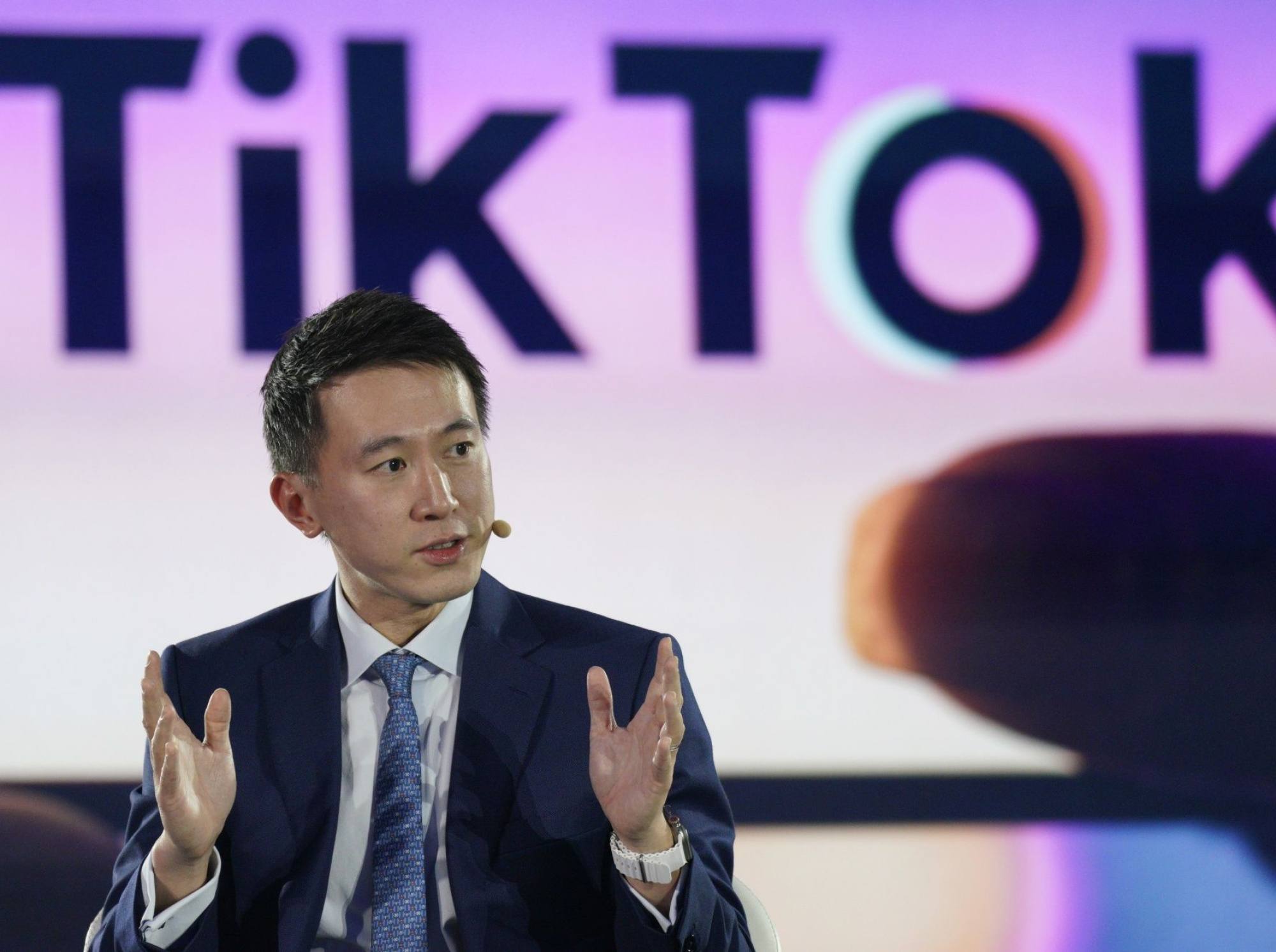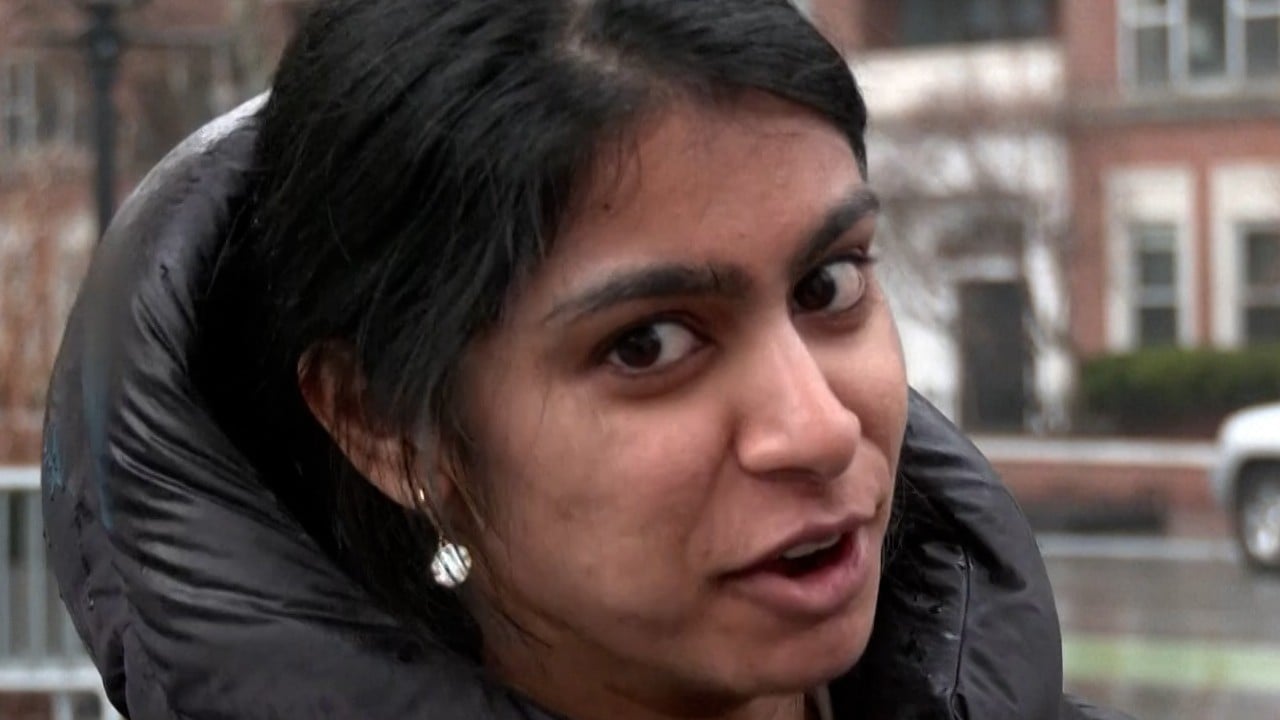
Singapore’s Gen Z gives TikTok CEO Chew Shou Zi ‘zaddy’ status for his savvy handling of US Congress
- The TikTok CEO’s responses to US lawmakers grilling him over online safety, data privacy and national security earned him many young fans
- Singapore TikTok burst to life with videos of 40-year-old Chew bearing the ‘zaddy’ tag, a slang term for an attractive, charismatic older man
On Wednesday, Chew thanked users for their support and announced that he had reached his first million followers. “I’ve been reading the comments and I want to thank you for the support,” he said in a video clip.
Chew, himself a Singaporean, earned the admiration of many of the city state’s youngsters who were watching as American lawmakers fired questions at him on a range of issues including safety for young users, data privacy and US national security.
Soon after the hearing, TikTok burst into life with videos of Chew and the tag zaddy, a word added to the Oxford English Dictionary in 2021, while others referred to him as oppa, Korean for older brother.
Same event, seen differently
To some, the congressional hearing played out like a joust between clumsy, hectoring older Western officials and a fresh Asian voice.
Answering a question whether TikTok had to turn in data if prompted by the Communist Party and if it was required by Chinese law to do so, Chew replied: “Congressman, first, I’m Singaporean.”
I’m proud that a fellow Singaporean is able to make Singapore more prominent
His responses earned him an army of online supporters, with one user making a playful pun of his name – tweeting that “Shou Zi Chew didn’t just chew, he ate” – referring to internet slang to suggest that he handled the hearing with style.
Another TikTok user made a video using pictures of Chew with the caption “TikTok zaddy protecting our first amendment rights” written on the clip.
Others were taken with how he carried himself during the hearing.
“I’m proud that a fellow Singaporean is able to make Singapore more prominent,” said Lee Jun Hao, a civil servant in the city state.
While Lee is concerned about how his data might be exploited by entities outside the app, he said most of his peers were indifferent to the swirling privacy debates. “They should be more concerned, but how much time does everyone actually have to constantly update themselves on data breaches?”

Nonchalant about privacy fears
Brand consultant Yap Ying Qian said that in her social circles, most people focused on how Chew managed to keep his composure during a fiery hearing.
“From a branding point of view, it’s definitely a huge win for TikTok,” she said.
With many youngsters conditioned to think that data collection allows for a more “personal” digital experience, Yap speculated that people were more than happy to give up security for entertainment.
Singapore says TikTok use on government devices only on ‘need-to basis’
But she raised concerns that the social media giant was “capitalising” on Chew’s new-found zaddy status to brush over the privacy and data security debates.
“I feel like people are sort of siding with Chew Shou Zi [after the hearing] and by extension, TikTok,” she said.
Young people may only be paying attention to the congressional hearings due to their familiarity with the TikTok brand, said Tey Beng Huan, a lecturer from Temasek Polytechnic’s Centre for Applied Behavioural and Social Sciences.
“Memes have always been about putting out a message to capitalise on the trend and topical popularity of the day, and to draw views and clicks,” he said.
Singapore-based researcher Jeremy Sng said users may be wise “to see for themselves how much or quickly algorithms can adapt their personal profile or behaviour”.
However, it was unlikely that meme-making or the zaddy jokes would translate into a deeper concern about data security, said Sng, a lecturer from Singapore’s Nanyang Technological University whose research focuses primarily on social media.
“As long as the cost of privacy does not exceed the benefits, they will be willing to forgo it,” he said.
‘A quiet policy’: is a TikTok ban in Japan really ‘not possible’?
Lim Sun Sun, a professor of communication and technology at the Singapore Management University, said most TikTok users go online in search of good vibes, or “gratifications”, and only think about issues like data security and online safety when things go wrong.
“Due to the circuitous way in which the congressmen asked their questions that also betrayed their poor technical knowledge, the hearings were shared more for their comic value rather than for their substantive content,” she said.
For now, the social cost of not being on the app, which has amassed more than 1 billion users, outweighs the perceived risks to privacy.
“Youths value social norms and social acceptance, so there are likely perceived intangible benefits of being on TikTok when all their friends are also on TikTok,” Sng said.



